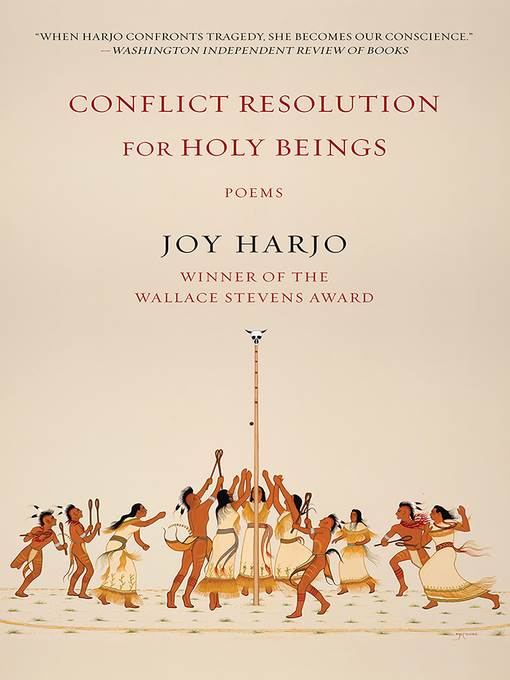
Conflict Resolution for Holy Beings
Poems
کتاب های مرتبط
- اطلاعات
- نقد و بررسی
- دیدگاه کاربران
نقد و بررسی

October 19, 2015
Big but fast-moving, and inviting as it expresses tenacity and outrage, Harjo’s first collection of verse since her 2012 memoir, Crazy Brave, will please her
fans. Harjo’s long lines, short prose paragraphs, and song-like lyrics record her Muskogee heritage, her love of jazz (“there’s something about a lone horn player blowing ballads at the corners of our lives”), and her high hopes for poetry itself, which creates a means of personal rescue (“we sang our grief to clean the air of turbulent spirits”) and a new moral high ground (“songs that aren’t paid for/ By the money and influence/ Of rich, fat, corporate gods”). Harjo records and performs music frequently, but some of the songs here do not translate well to the page (“One day I will be tough enough/ One day, I will have love enough/ To go home”). The book is not a new-and-selected, though some nonsong poems have previously appeared in earlier books and may find new life here. Less predictable are pages about living, landscape, and Native heritage in Hawaii—her part-time home—and pages about her visit to “the lands named ‘Alaska’ now”: these verses and anecdotes give the volume its freshness, even as they take part in Harjo’s larger project of Native, and human, solidarity.

August 1, 2015
In her first volume of poetry in more than ten years, Harjo (Crazy Brave), a member of the Mvskoke/Creek Nation, travels the Trail of Tears, moving from a bend in the Tallapoosa River to the banks of the Arkansas. The poems, typically juxtaposed against short, jazzy prose introductions, are often narrative and as often songs with repeated refrains, even litanies--hardly surprising, as Harjo is a performer as well as a poet. In each poem, there is music that riffs and sings and sometimes drums, as well as a sense of community and connection: "To understand each/ other is profound beyond human words.// This is what I am singing." Yet while the volume is imbued with story and song, tales and invocations, and myth, chants and epistles, at its heart is ceremony, the need to create and re-create, to bless and restore. Ceremony elevates and expiates experience, and in many ways these poems are rituals of becoming, allowing us to heal, to become better, to become again: "Every poem is an effort at ceremony./I ask for a way in." VERDICT A poignant collection that will draw in a range of readers; appropriate for many libraries. [See Prepub Alert, 6/14/15.]--Karla Huston, Appleton, WI
Copyright 2015 Library Journal, LLC Used with permission.

























دیدگاه کاربران